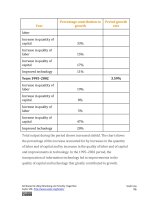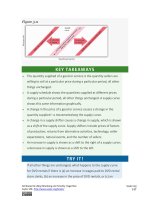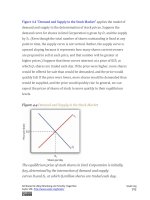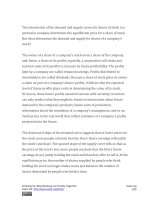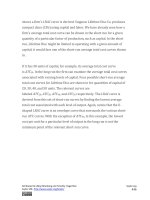Authors libby rittenberg 100
Bạn đang xem bản rút gọn của tài liệu. Xem và tải ngay bản đầy đủ của tài liệu tại đây (371.9 KB, 1 trang )
Chile. Hong Kong, though now part of China, has a long history as a market
capitalist economy and is generally regarded as operating at the market
capitalist end of the spectrum. Countries at the command socialist end of
the spectrum include North Korea and Cuba.
Figure 2.14 Economic Systems
Some European economies, such as France, Germany, and Sweden, have a
sufficiently high degree of regulation that we consider them as operating
more toward the center of the spectrum. Russia and China, which long
operated at the command socialist end of the spectrum, can now be
considered mixed economies. Most economies in Latin America once
operated toward the right end of the spectrum. While their governments
did not exercise the extensive ownership of capital and natural resources
that are one characteristic of command socialist systems, their
governments did impose extensive regulations. Many of these nations are
in the process of carrying out economic reforms that will move them
further in the direction of market capitalism.
The global shift toward market capitalist economic systems that occurred
in the 1980s and 1990s was in large part the result of three important
features of such economies. First, the emphasis on individual ownership
and decision-making power has generally yielded greater individual
freedom than has been available under command socialist or some more
heavily regulated mixed economic systems that lie toward the command
socialist end of the spectrum. People seeking political, religious, and
Attributed to Libby Rittenberg and Timothy Tregarthen
Saylor URL: />
Saylor.org
100
